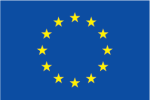One of the main purposes of the INTEGRITY project is to empower students for responsible research conduct through evidence-based, scaffolded learning. According to the INTEGRITY H2020 website, this will be achieved by combining “high quality training in research integrity with innovative modes of engagement.” In addition, there is an aspiration to “detect and mitigate gaps in teaching, and to help build tailor-made curricula and tools for students in the whole range of research areas and in three levels of studies.” These are certainly ambitious aspirations, particularly when curricula and tools are required to be designed and developed for three distinct cohorts of students at high school, undergraduate and PhD levels across a variety of European countries. Trinity College Dublin (TCD), Science Gallery Dublin, Universidade do Porto (IBMC), and the University of Ljubljana have been working to develop such tailor-made and innovative tools for the high school student cohort. This blog post will describe the work carried out designing and developing these tools.
The high school tools originally took inspiration from a variety of sources including the TCD EthicsLab initiative, the Science Gallery Open Mind Studio, the STE(A)M Junior Cycle programme, and the iWish programme for showcasing STEM to female high school students in Ireland. In addition, a number of other national and international policy documents including the European Code of Conduct for Research Integrity and the EU Framework for Key Competencies on Lifelong Learning were relied on for philosophical and pedagogical scaffolding of the tools (the full list of documents are given at the end of the blog post). Based on this, a research integrity course for high schools made up of twelve separate modules was developed. The course and each of the individual modules have been designed around the core INTEGRITY principle of ‘empowerment’ of the student and also the three main themes which emerged from INTEGRITY WP2 i.e. drawing on the work of others; collaboration and authorship (e.g. of homework and group assignments); and the collection, analysis and presentation of data.


Leave a Reply